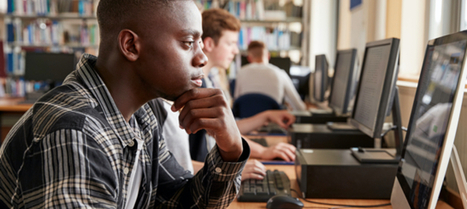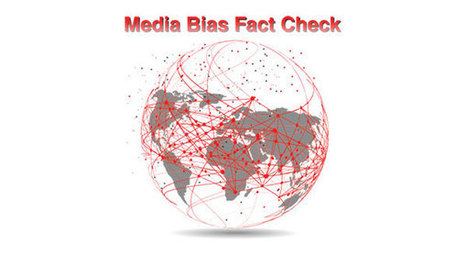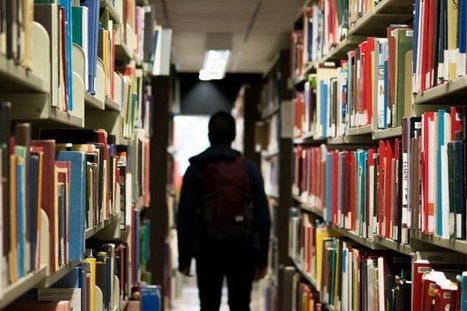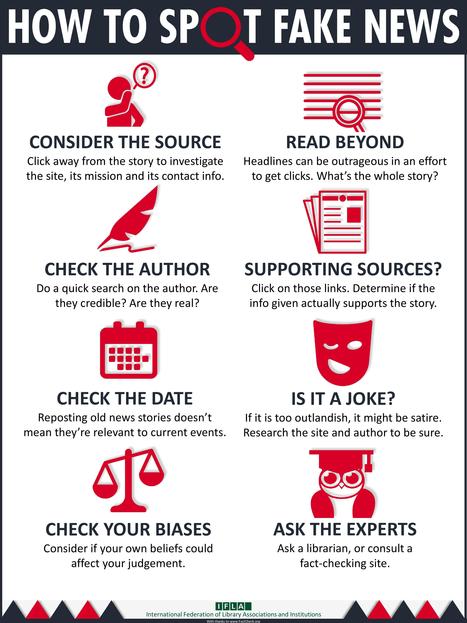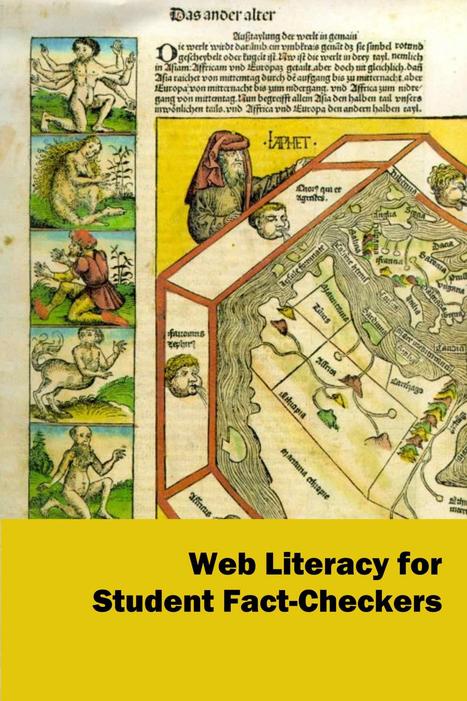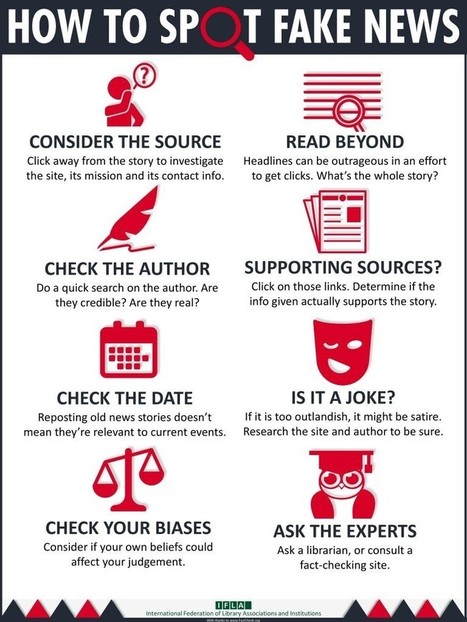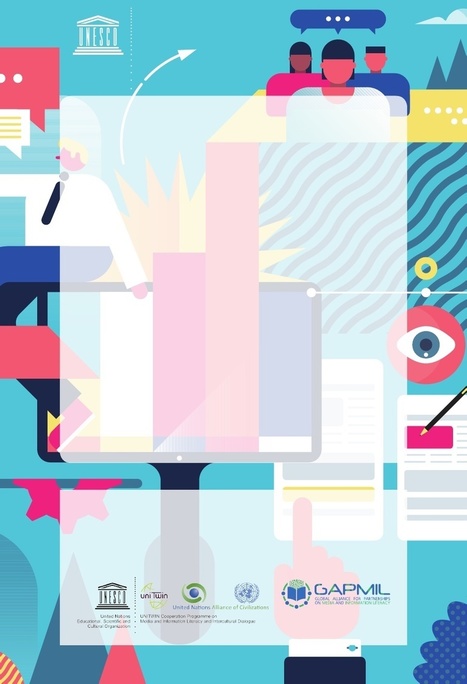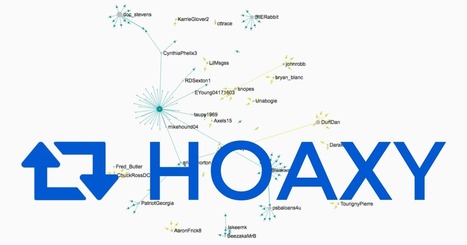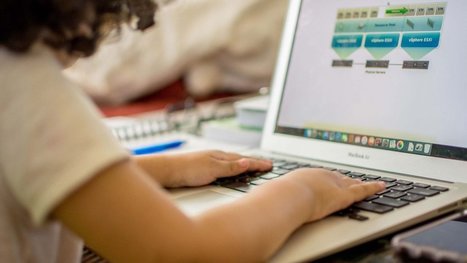 Your new post is loading...
 Your new post is loading...
Our public square isn’t what it used to be. But, if schools lead the way, media literacy education can help us rebuild civic society. If the damage to public discourse wasn’t clear already, the recent controversy over political advertising on social media platforms surely drove the point home. While Twitter’s Jack Dorsey announced a ban on such advertising, Mark Zuckerberg defended Facebook’s decision to keep hosting political ads without subjecting it to rigorous fact-checking.
Political advertising on Google Our goal is to provide greater transparency in political advertising on Google, YouTube, and partner properties. This report includes information about spending on ads related to elections that feature a candidate for elected office, a current officeholder, or political party in a parliamentary system.
With all the information they ever need right at their fingertips, it is imperative to teach students how to check their facts. Unfortunately, it can be challenging to know what is true and false, and students are struggling deciphering the truths from the falsehoods. According to Stanford University, their research “shows a dismaying inability by students to reason about information they see on the Internet, the authors said. Students, for example, had a hard time distinguishing advertisements from news articles or identifying where information came from.”
7/20/16 The purpose of this website is not only to deliver news, but to also be a resource on media bias and fact checking. When checking facts these are the 10 sites we find to be most valuable. In most cases, one of these sites has already covered the fact check we are seeking, making the job easy. Listed below you will find our favorite (most trusted) fact checking websites. Bookmark them or just visit MBFC News and we will filter them for you. Politifact– PolitiFact is a fact-checking website that rates the accuracy of claims by elected officials and others who speak up in American politics. PolitiFact is run by editors and reporters from the Tampa Bay Times, an independent newspaper in Florida. Politifact is simply the best source for political fact checking. Won the Pulitzer Prize. Fact Check– FactCheck.org is a project of the Annenberg Public Policy Center of the University of Pennsylvania. They are a nonpartisan, nonprofit “consumer advocate” for voters that aims to reduce the level of deception and confusion in U.S. politics. They monitor the factual accuracy of what is said by major U.S. political players in the form of TV ads, debates, speeches, interviews [...]
Via Ana Cristina Pratas
This is an unabashedly practical guide for the student fact-checker. It supplements generic information literacy with the specific web-based techniques that can get you closer to the truth on the web more quickly.
Via Nik Peachey
“Digital literacy involves finding, using and disseminating information in a digital world” (Deakin University, 2016). Digital literacy is also a transversal skill, which means that by having good digital literacy, a person’s ability to learn and improve other skills increases through the use of technology.
In the next 5-10 years, a number of routine jobs will be taken over by automation and artificial intelligence (AI) (ACS, 2016). This automation and AI will also be ingrained in workplaces, homes and everything we do, due to the increased productivity and lifestyle gains that these technologies provide. In order to remain current in the workplace, and to be able to fully function in society, the need for good digital literacy has never been greater.
Web evaluation has been a standard information literacy offering for years and has always been a challenging topic for instruction librarians. Over time, the authors had tried a myriad of strategies to teach freshmen how to assess the credibility of Web sites but felt the efforts were insufficient. By familiarizing themselves with the cognitive development research, they were able to effectively revamp Web evaluation instruction to improve student learning. This article discusses the problems of traditional methods, such as checklists; summarizes the cognitive development research, particularly in regards to its relationship to the ACRL Information Literacy Standards; and details the instructional lesson plan developed by the authors that incorporates cognitive development theories.
A definitive guide to verifying digital content for emergency coverage
One of the problems I've had for a while with traditional digital literacy programs is that they tend to see digital literacy as a separable skill from domain knowledge. In the metaphor of most educators, there's a set of digital or information literacy skills, which is sort of like the factory process. And there's data,…
The new home for charts and data, powered by Quartz.
Via Nik Peachey
In an age where the majority of us get our news through social media, the rise of fake news sites, hoaxes and misinformation online is concerning, especially considering that many young people lack the skills necessary to judge the credibility of information they encounter online.
Welcome to snopes.com, the definitive Internet reference source for urban legends, folklore, myths, rumors, and misinformation.
Via Nik Peachey
|
Conference on Learning Information Literacy across the Globe
https://informationliteracy.eu/conference/
10.5.2019 Frankfurt am Main
#LILG_2019 #biblioVerifica #crowdSearcher #iloOER
The slides describes the BiblioVerifica blog, which is an attempt by librarians to fight misinformation by using media and data literacy, engaging citizens as awareness users of the social networks, chats and blogs.
Biblioverifica aims to be a public engagement project based on information literacy practices, implementing tips and tricks about search tools, reliable sources, verification strategies. This non-profit initiative promotes fact-checking based on open resources as data, journals, tools, etc.
contact
https://economia.uniroma2.it/biblioteca/lilg_2019/
Library and Learning Resources: Fake News: Home
Web literacy for student fact-checkers - book
Our job as citizens requires more than just being informed. We must also be vigilant about verifying information before posting it on social media.
Via EDTECH@UTRGV
Dean Jennifer Fabbi and her staff at the Cal State San Marcos Library are on the front lines of fighting fake news.
“When I first got into this field, it was all about helping people find information,” Fabbi said. “Information was scarce and you often needed a librarian to find it. Now you have a glut of information; we’re drowning in it. But people often don’t have the skills to evaluate that information for biases and legitimacy.”
Media and Information Literacy: Reinforcing Human Rights, Countering Radicalization and Extremism - Free ebook download as PDF File (.pdf), Text File (.txt) or read book online for free. MIL is a strong tool, cutting across educational, cultural and social contexts. It can help overcome disinformation, stereotypes and intolerance conveyed through some media and in online spaces. Here, stimulating critical empathy is one of the vital components and there are many stakeholders that have a role to play in this dimen- sion of MIL.
Furthermore, MIL empowers people to be curious, to search, to critically eval- uate, to use and to contribute information and media content wisely. MIL calls for competence in knowing one’s rights online; combating online hate speech and cyberbullying; and understanding the ethical issues surrounding access and use of Information. In this way, MIL makes it possible for people to engage with media and ICTs to promote equality, free expression, intercultural and interreligious dialogue, and peace.
Have you ever noticed that when you present people with facts that are contrary to their deepest held beliefs they always change their minds? Me neither. In fact, people seem to double down on their beliefs in the teeth of overwhelming evidence against them. The reason is related to the worldview perceived to be under threat by the conflicting data.
Wolfram|Alpha is more than a search engine. It gives you access to the world's facts and data and calculates answers across a range of topics, including science, nutrition, history, geography, engineering, mathematics, linguistics, sports, finance
PolitiFact.com is a project of the Tampa Bay Times to help you find the truth in Washington and the Obama presidency.
From the website: "Hoaxy visualizes the spread of claims and related fact checking online. A claim may be a fake news article, hoax, rumor, conspiracy theory, satire, or even an accurate report. Anyone can use Hoaxy to explore how claims spread across social media."
Via Mary Reilley Clark
Studies suggest that many U.S. students are too trusting of information found on the internet and rarely evaluate the credibility of a website’s information. For example, a survey found that only 4 percent of middle school students reported checking the accuracy of information found on the web at school, and even fewer did so at home (New Literacies Research Team & Internet Reading Research Group, 2006). At the same time, the web is often used as a source of information in school projects, even in early schooling, and sites with inaccurate information can come up high in search rankings.
Fake news, unreliable websites, viral posts—you would think students who have grown up with the internet would easily navigate it all, but according to a study done by Stanford researchers, that couldn’t be further from the truth.
|



 Your new post is loading...
Your new post is loading...

